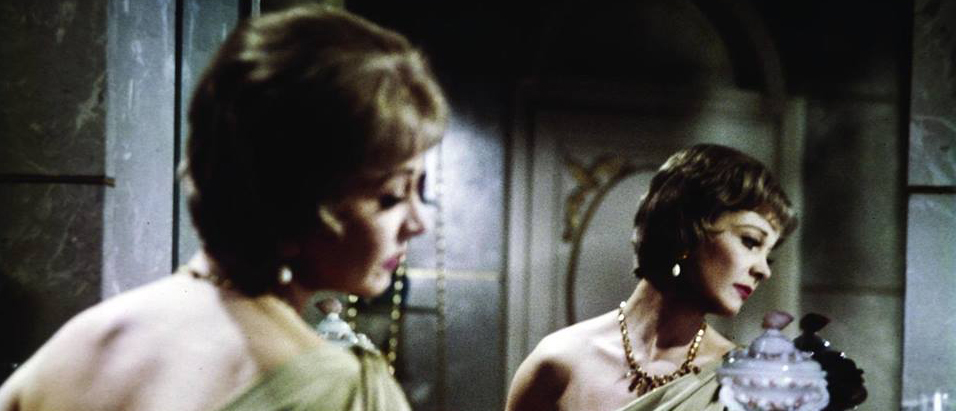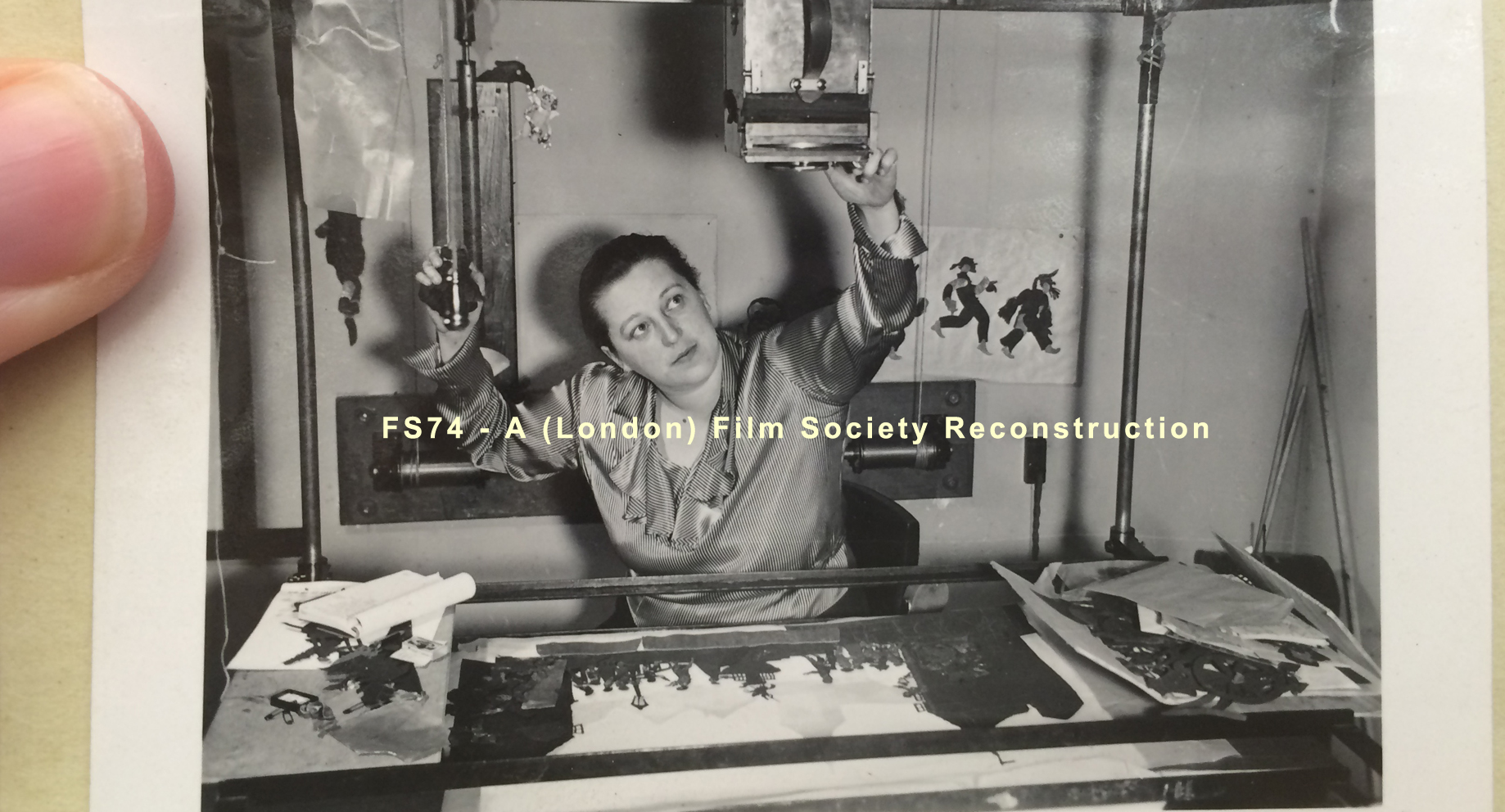Birkbeck Institute for the Moving Image
Saturday 15 June 2019
Curated by Tashi Petter and Henry K. Miller
The Programme:
Vivian Braun and Irene Nicholson, Beyond This Open Road (1934) – 35mm
John B. Holmes, The Cathode Ray Oscillograph (1934) – 16mm
Lotte Reiniger, Das Rollende Rad (1934) – 16mm
Oskar Fischinger, Kreise (1933-34) and Muratti Greift Ein (1934) – h.264 (digital files)
Alexeieff and Parker, Night on the Bare Mountain (1934) – 16mm
Jean Vigo, Zero de Conduit (1933) – 35mm
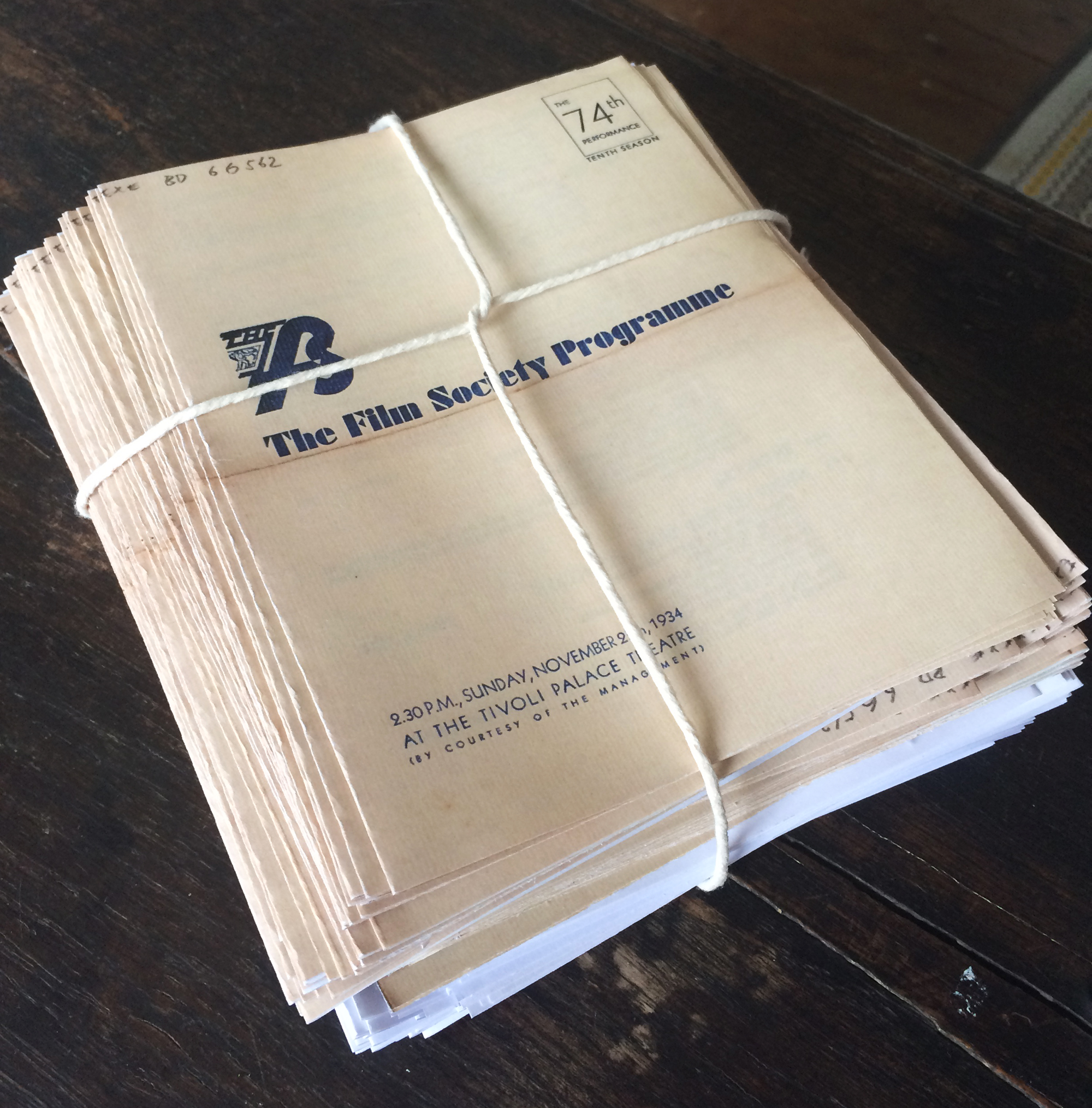
On a sunny but breezy Saturday, 70 cinephiles and members of the public gathered at the Birkbeck Institute for the Moving Image for ‘FS74’, a re-staging of the 74th Performance of the Film Society. 85 years after the original event – 25thNovember 1934 at the Tivoli, the Strand – seven out of eight titles were screened and where possible, using 16 or 35mm prints from the BFI archive. On entering the auditorium, attendees were presented with various handouts, including a facsimile copy of the original programme (thanks to Phil Wickham and the Bill Douglas Museum) as well as some mysterious sheets of tracing paper, with further instructions to follow.
The Film Society had been founded in London by a group of young filmmakers and cinephiles including Ivor Montagu and Iris Barry. Between 1925-1939, they exhibited titles that were unavailable commercially or difficult to access elsewhere in Britain. With eight shows a year and the support of high-profile patrons, including literati, aristocracy and members of the Bloomsbury group (many of whom lived in the buildings which now make up the Birkbeck campus), these screenings of international avant-garde cinema helped to foster Britain’s emerging film culture. Early programmes included German expressionist cinema, slapstick ‘resurrections’ and ‘Absolute’ animation, and the catalogue is often remembered today in connection with Soviet cinema. Indeed, in October 1926, Eisenstein’s Battleship Potemkin (1925) was amongst the top titles suggested by Film Society members. More surprisingly, however, was the other vote: Lotte Reiniger’s The Adventures of Prince Achmed (1926).
Reiniger’s silhouette fantasy film is now accepted as the earliest surviving feature-length in the history of the cinema, and due to popular demand, was screened twice to Film Society audiences in interwar London. Moreover, a survey of programmes reveals that 17 Film Society screenings featured animations by Reiniger, very likely more than any other single filmmaker.
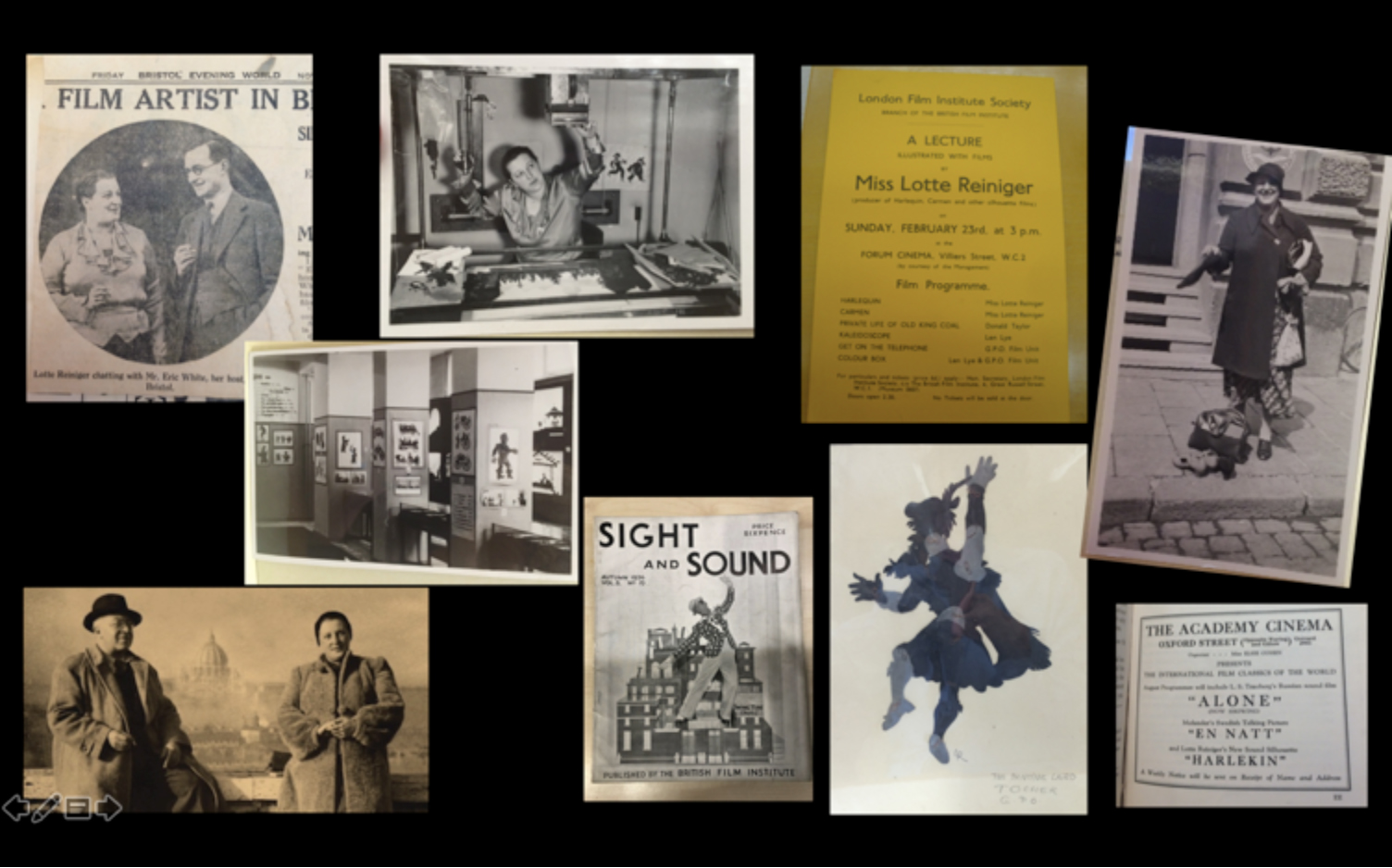
FS74 was no exception and as well as screening Reiniger’s Das Rollende Rad, the BIMI reconstruction kicked off with an introduction by Queen Mary Doctoral Candidate Tashi Petter, highlighting the particularly close but little-known relationship between this émigré silhouette filmmaker and the FIlm Society. Tashi’s preamble was illustrated with images from her archive research and concluded with some advice for the audience, extracted from the programme for the 33rd Film Society event:
Members are requested to remind their guests that the Society was founded and is continued for the purpose, only, of technical study. Expression of emotion during the course of a film of such a nature that it may distract the attention is therefore to be avoided.
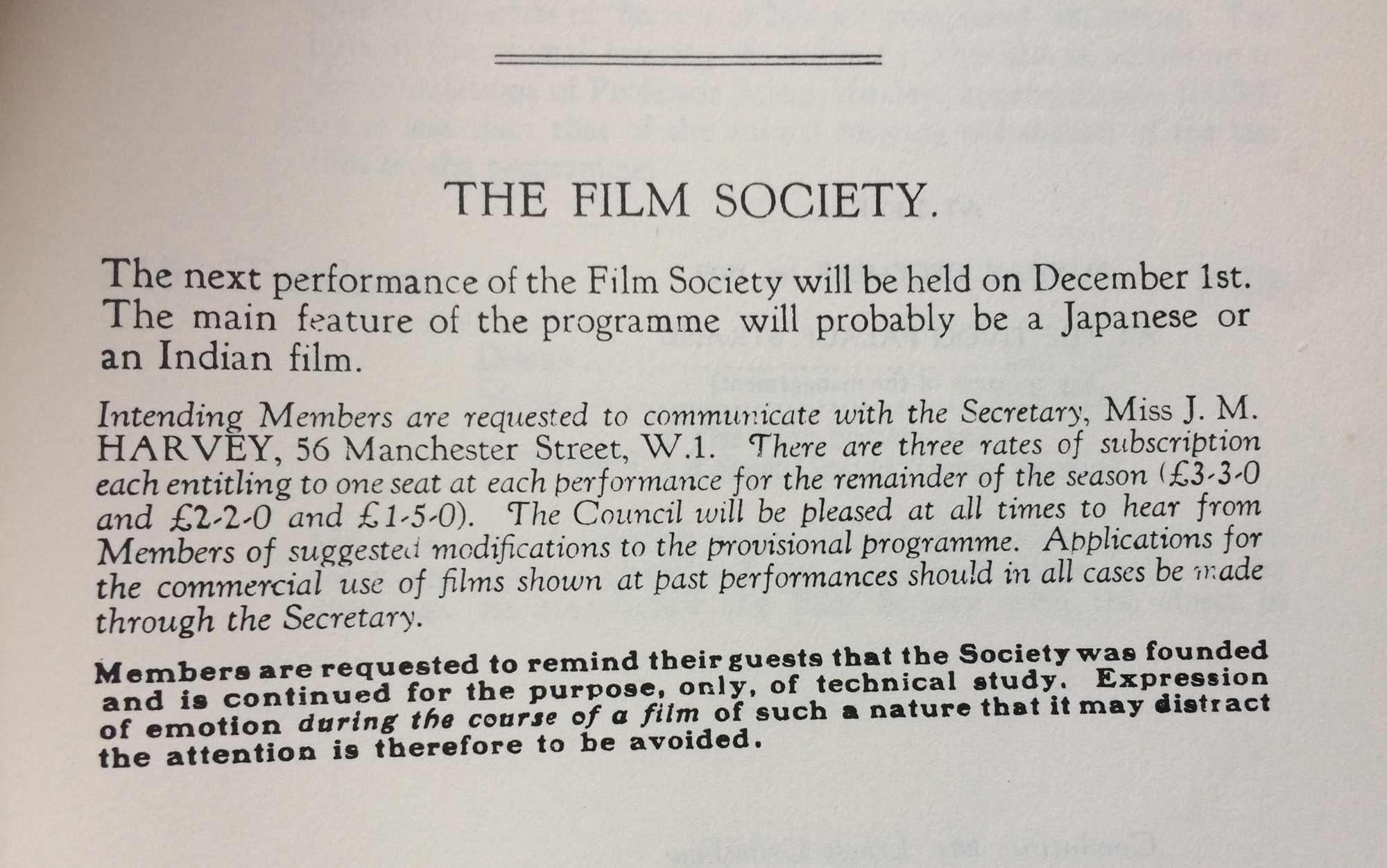
FS74 adhered to the original running order, and as per the programme, the opening title, Beyond the Open Road, was accompanied by ‘non-synchronous music by Jack Ellitt’ (a FS regular and composer) and was soon followed by a Cathode Ray demonstration film.
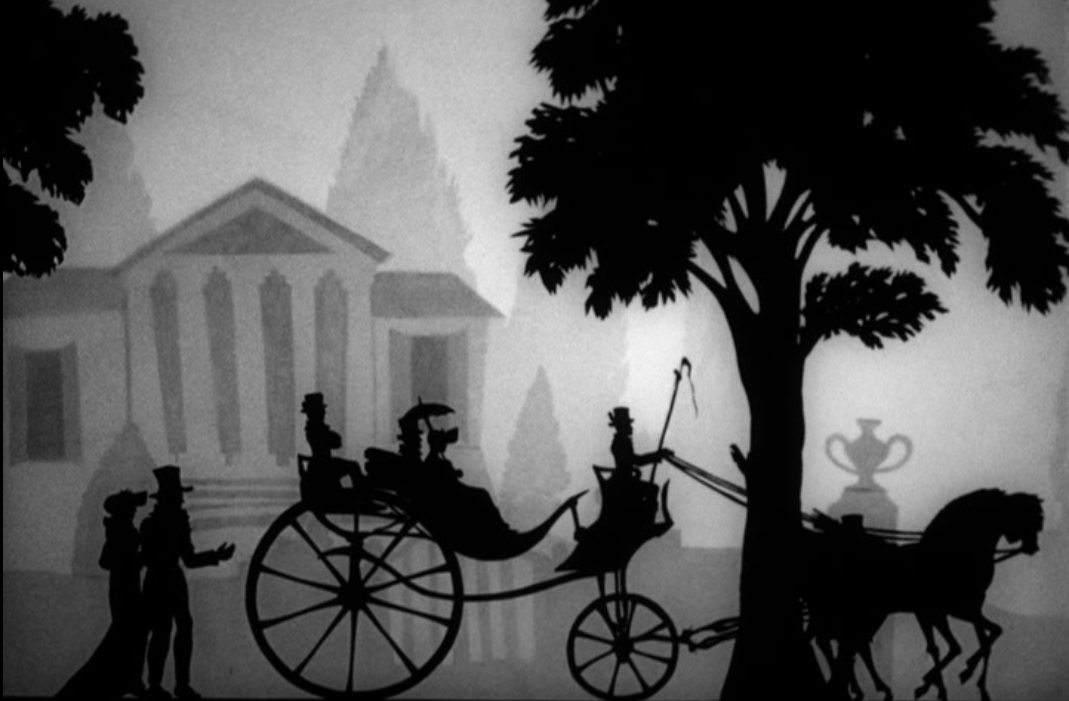
The aforementioned tracing paper came in handy in the next title: Lotte Reiniger’s Das Rollende Rad, a ‘Kulturfilm’ commissioned by the German Ministry of Transport with German-language voiceover and intertitles. Printed with English translations, audience members were encouraged to hold up the transparent sheets in front of the screen, reading the translated text while following the action, thereby re-enacting the humorous but somewhat ineffectual subtitling strategy allegedly used by Film Society during the 1930s. The progamme’s middle-section of animation continued with Oskar Fischinger’s Kreise (1933-34) and Muratti Greift Ein (1934), before the particularly spectacular Night on the Bare Mountain (1934) by Alexeieff and Parker. According to Reiniger, who talked about this innovative pinscreen short in a lecture in Bristol 1937, ‘Alexeieff has succeeded in making you really believe in the existence of nightmare ghosts, witches and all sorts of unbelievable and unreal movements and visions.’Last but not least, FS74 wrapped up with Jean Vigo’s absurdist boarding-school comedy, Zéro de Conduite.
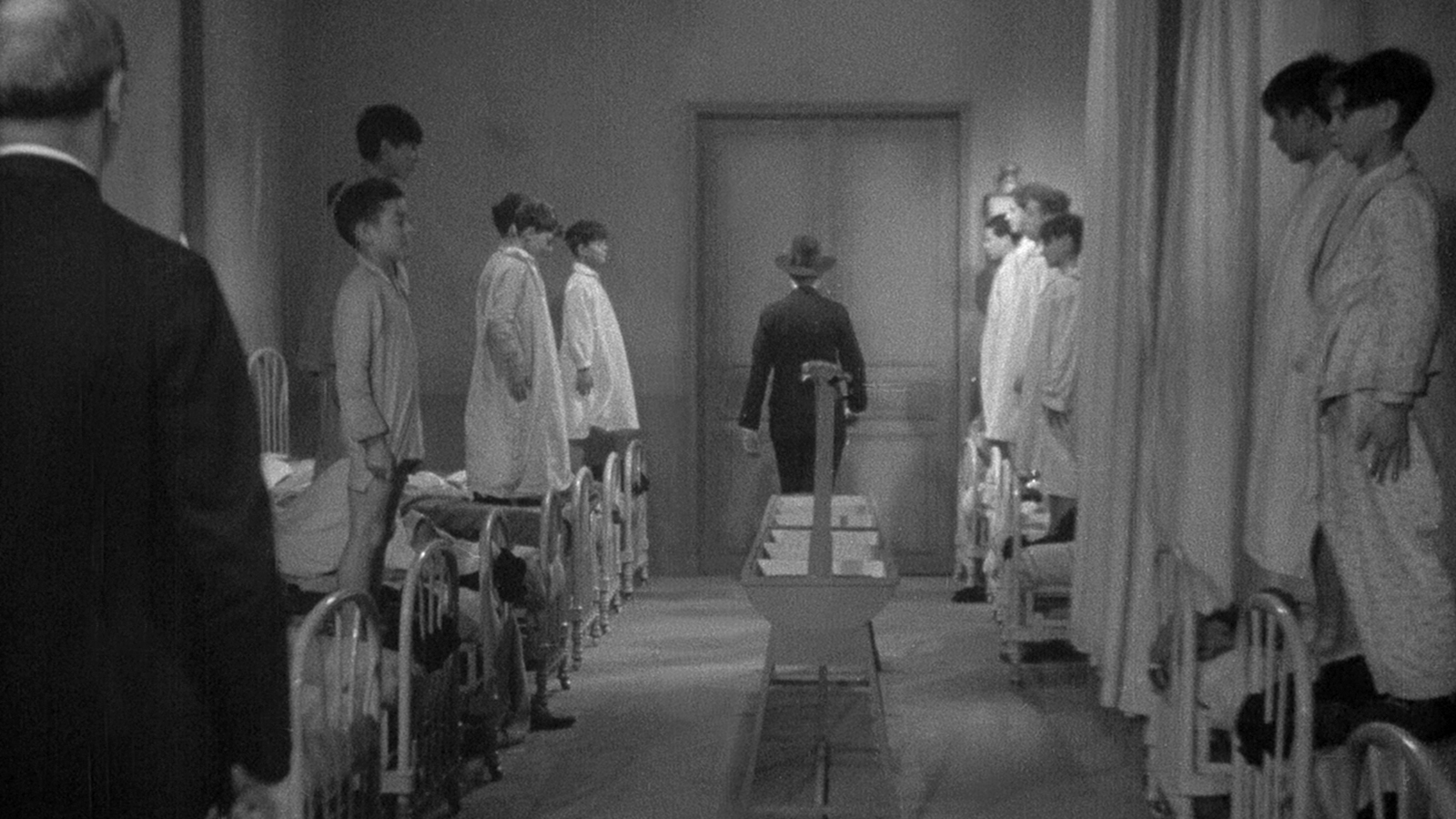
Following the films, the audience spilled out into the Keynes Library upstairs, where Living British Cinema provided some much-needed refreshment. As cinephiles, students and members of the public conversed over wine and nibbles, the setting was particularly apt given that John Maynard Keynes was among the founding members of the Society and was very likely in the audience of the original 74th screening.
Tashi Petter
The FS74 organisers would like to thank:
– Matthew Barrington & Michael Temple, Birkbeck Institute for the Moving Image
– BAFTSS Animation SIG
– University of Reading
– Urša Horjak, our projectionist
– Phil Wickham, the Bill Douglas Museum, University of Exeter
– Lucy Bolton & Living British Cinema
– Victoria Bennett, BFI Special Collections
– Westminster City Archives
– German Screen Studies Network
For more information about FS74 or future Film Society reconstructions, please contact t.petter@qmul.ac.uk or henry.miller@gmail.com
